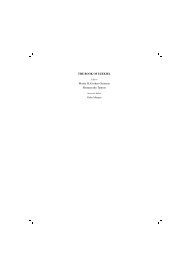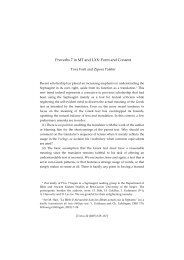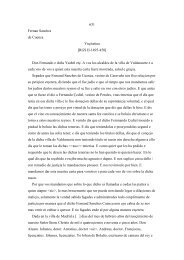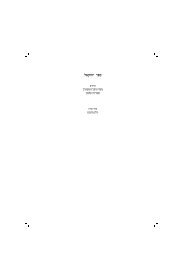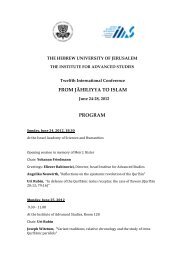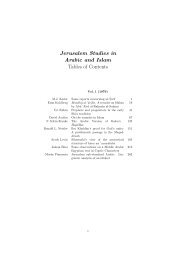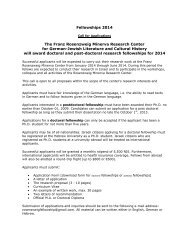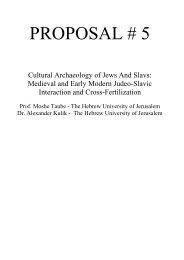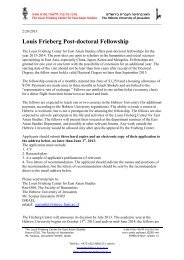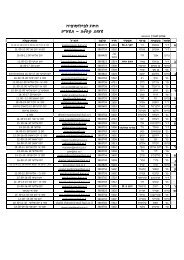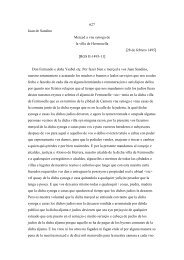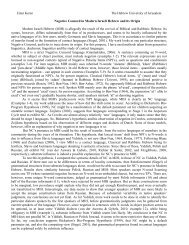Baber Johansen
Baber Johansen
Baber Johansen
You also want an ePaper? Increase the reach of your titles
YUMPU automatically turns print PDFs into web optimized ePapers that Google loves.
26<br />
The rational reconstruction of the contingent world’s creation by an<br />
eternal and not contingent divinity is the task of theology. But once it has<br />
performed this task and has proven the existence of the divine, the<br />
creation of the world by the divinity, the truthfulness of God’s prophets<br />
and—consequently—the truthfulness of revelation, its competency and<br />
authority ends. God’s word and God’s will are only partly accessible to<br />
human rationality. With regard to them, rational investigation cannot<br />
reach conclusive results. When the Prophet and the texts of the revelation<br />
request that human beings obey the divine law in the contingent world so<br />
as to ensure their happiness in the non-contingent world of the hereafter,<br />
the theologians do not find the instruments by which to prove or to<br />
disprove this claim in their tool kit. They, therefore, have to submit to the<br />
authority of the revealed text, whose authenticity they can prove but for<br />
whose interpretation and analysis their methods of the rational<br />
reconstruction of the existing world are not appropriate. "The sacred law<br />
here brings what reason by itself cannot comprehend." The theologians—<br />
like all other believers—have to submit to this authority.<br />
The authority to interpret the QurÞÁn, to authenticate the ÎadÐth, to<br />
recognize and develop the norms of the applied law (furÙÝ al-fiqh) or the<br />
rules of the methodology of law (uÒÙl al-fiqh) falls not to theology, the<br />
discipline of the universal, but to the disciplines of the particulars.<br />
Exegesis, ÎadÐth, applied law (furÙÝ al-fiqh), and legal methodology (uÒÙl<br />
al-fiqh) are each more competent in their own fields than theology. These<br />
disciplines depend for the proof of the relation between the contingent<br />
world and its non-contingent creator on the results of the theologian’s<br />
work. But their scholars are not obliged to be theologians, because their<br />
disciplines constitute particular fields of knowledge that cannot be<br />
governed by the universal discipline of theology. 80<br />
In a similar approach the Íanbalī jurist Ibn ÝAqÐl, the leading scholar of<br />
his school at the end of the eleventh and the beginning of the twelfth<br />
century, distinguishes the theologian from the jurist in the following<br />
words:



